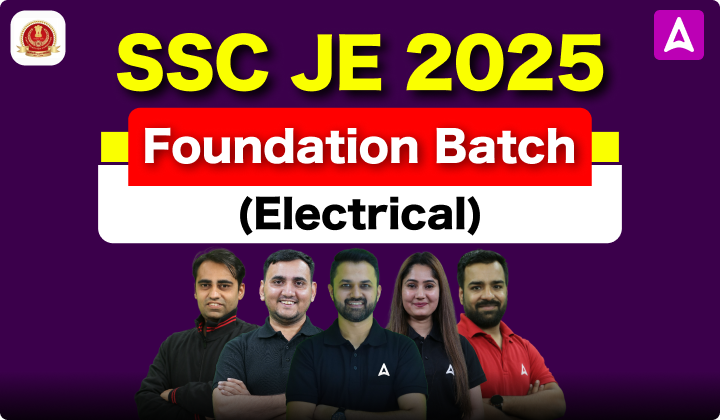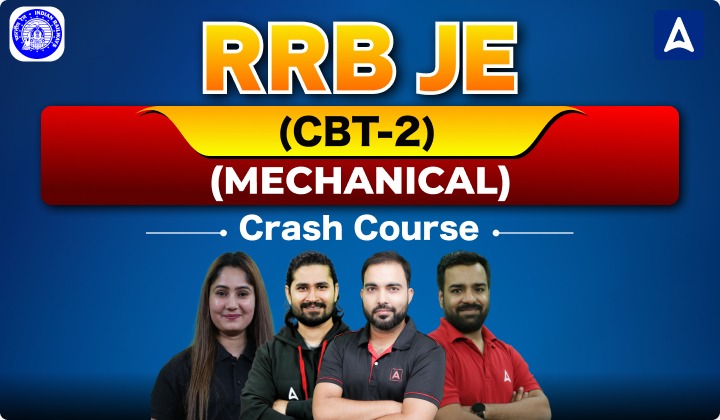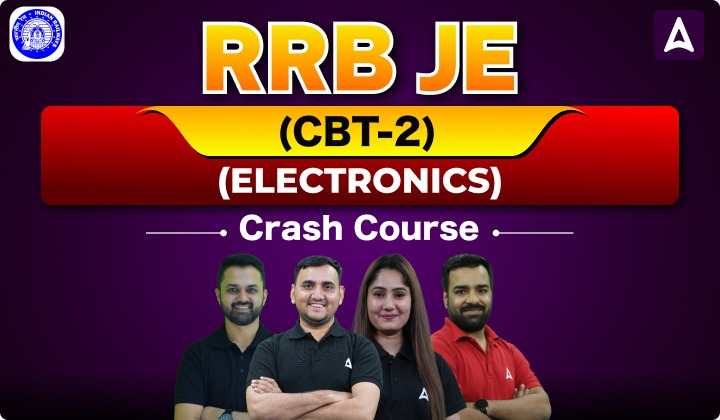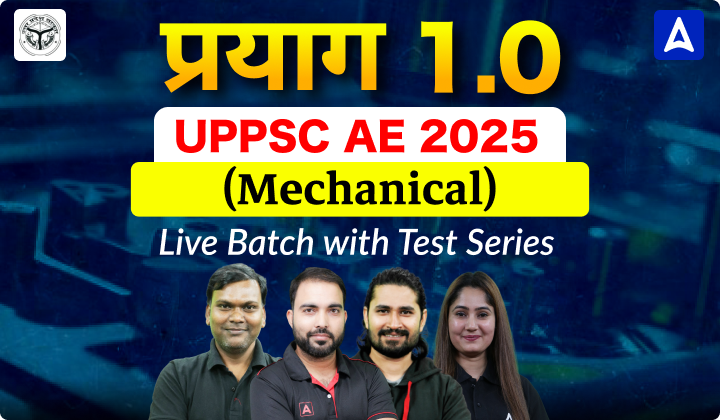Table of Contents
The Indian Institute of Technology, Roorkee (IIT Roorkee) has released the official GATE Electrical Engineering Exam 2025 syllabus on its website at gate.iitr.ac.in. The GATE 2025 Exam will take place on the 1st, 2nd, 15th and 16th of February 2025, organized by IIT Roorkee. To do well in the Electrical Engineering section of the GATE 2025 Exam, candidates need to be familiar with the syllabus. Understanding the syllabus will help you know the topics that will be covered in the exam. We have provided the complete GATE 2025 Electrical Engineering Syllabus here to assist you in preparing effectively. Be sure to review the entire syllabus below and save this page for the latest updates on GATE and other Engineering Exams.
GATE Electrical Engineering Syllabus 2025
The GATE Electrical Engineering Syllabus 2025 is discussed here to help the aspirants in making their preparation effective. The Graduate Aptitude Test in Engineering is a computer-based online examination organized to examine the academic knowledge, technical skills, and concepts understanding of candidates.
You should refer to the GATE 2025 Syllabus for Electrical Engineering discipline given here to plan your preparation accordingly. Read the full article carefully for complete insights into GATE Electrical Syllabus 2025 and bookmark this website for further Engineering Exams Updates.
GATE Electrical Engineering Syllabus 2025-Overview
Candidates must check out the table shown below for a brief overview of GATE Electrical Engineering Syllabus 2025.
| GATE Electrical Engineering Syllabus 2025 | |
| GATE Full Form | Graduate Aptitude Test for Engineering (GATE) |
| GATE 2025 Conducting Authority | IIT Roorkee |
| GATE 2025 Number of Papers | 30 |
| GATE 2025 Mode of Exam | Computer Based Test (CBT) |
| GATE Electrical 2025 Exam Date | 2nd February 2025 |
| Number of Questions Asked | 65 |
| GATE 2025 Marks Distribution | 15 Marks (General Aptitude) + 85 Marks (Subject Questions)= 100 Marks (Total) |
| GATE Exam Language | English |
| GATE Marking Scheme | One Mark and Two Marks |
| Negative Marking | Yes |
GATE Exam 2025
Graduate Aptitude Test in Engineering is one of the most reputed and popular examinations in India for Technical Graduates. It offers various career opportunities to candidates like admission to the PG Program in top institutions of the country and PSU Jobs. GATE 2025 is a standardized test conducted at the national level to examine the understanding of students in their respective branches.
Check: Benefits of the GATE Exam
GATE Electrical Syllabus 2025
The aspirants who are going to appear for GATE Exam 2025 should be well-versed in GATE Electrical Engineering Syllabus 2025 to get a better understanding of the exam. The aspirants are advised to start their preparation early as per the syllabus to crack the exam with a good score. The officials have already released the GATE Syllabus for Electrical on its official website. Candidates can check the complete topic-wise syllabus provided below.
GATE Electrical Exam Pattern 2025
The GATE 2025 Electrical Engineering question paper will comprise 65 questions from 3 sections viz General Aptitude, Engineering Mathematics, and Specific Subject. All the questions will be of three types namely MCQs, MSQs, and NATs. The GATE 2024 Electrical Exam Pattern is given in this section:
| GATE Electrical Engineering Exam Pattern 2025 | |
| GATE 2025 Examination Mode | Computer-Based Test (Online) |
| GATE 2025 Exam Duration | 3 Hours |
| GATE Exam 2025 No. of Subjects | 30 Subjects |
| GATE Exam 2025 Total Marks | 100 Marks |
| GATE Exam 2025 Number of Questions | 10 (GA) + 55 (subject) = 65 Questions |
| GATE 2025 Type of Questions | Multiple Choice Questions, Multiple Select Questions, and Numerical Answer Type Questions |
GATE Electrical Engineering Syllabus PDF
The candidates can download the GATE Electrical Engineering Syllabus PDF through the direct link given below. The aspirants must know the Electrical Engineering syllabus to ace their preparation for the upcoming GATE Examination. The GATE Electrical Syllabus 2025 is a reference to plan your preparation as per the need of the exam. Follow the direct link available here to access the GATE Electrical Engineering Syllabus in PDF format.
GATE Electrical Engineering Syllabus 2024- Click Here
GATE Electrical Syllabus 2025 In Detail
The key points related to the GATE Electrical Engineering Syllabus 2025 are given below for the proper understanding of the candidates:
Section 1: Engineering Mathematics
The key points related to the Engineering Mathematics Syllabus are given below:
Linear Algebra:
- Matrix Algebra,
- Systems of linear equations,
- Eigenvalues,
- Eigenvectors.
Calculus:
- Mean value theorems,
- Theorems of integral calculus,
- Evaluation of definite and improper integrals,
- Partial Derivatives,
- Maxima and minima,
- Multiple integrals,
- Fourier series,
- Vector identities,
- Directional derivatives,
- Line integral,
- Surface integral,
- Volume integral,
- Stokes’s theorem,
- Gauss’s theorem,
- Divergence theorem,
- Green’s theorem.
Differential equations:
- First-order equations (linear and nonlinear),
- Higher-order linear differential equations with constant coefficients,
- Method of variation of parameters,
- Cauchy’s equation,
- Euler’s equation,
- Initial and boundary value problems,
- Partial Differential Equations,
- Method of separation of variables.
Complex Variables:
- Analytic functions,
- Cauchy’s integral theorem,
- Cauchy’s integral formula,
- Taylor series,
- Laurent series,
- Residue theorem,
- Solution integrals.
Probability and Statistics:
- Sampling theorems,
- Conditional probability,
- Mean, Median, Mode, Standard Deviation,
- Random variables,
- Discrete and Continuous distributions,
- Poisson distribution,
- Normal distribution,
- Binomial distribution,
- Correlation analysis,
- Regression analysis.
Section 2: Electric circuits
The Electric circuits sections from the GATE EE Syllabus consist of the following topics:
- Network elements:
- ideal voltage and current sources,
- dependent sources, R, L, C, M elements;
- Network solution methods: KCL, KVL, Node, and Mesh analysis;
- Network Theorems: Thevenin’s, Norton’s, Superposition and Maximum Power Transfer
theorem; - Transient response of dc and ac networks,
- sinusoidal steady-state analysis,
- resonance,
- two-port networks,
- balanced three-phase circuits,
- star-delta transformation,
- complex power and power factor in ac circuits.
Section 3: Electromagnetic Fields
The Electromagnetic Fields sections from the GATE EE Syllabus 2025 consist of the following topics:
- Coulomb’s Law,
- Electric Field Intensity,
- Electric Flux Density,
- Gauss’s Law,
- Divergence,
- Electric field and potential due to point,
- Lines
- plane and spherical charge distributions,
- Effect of dielectric medium,
- Capacitance of simple configurations,
- Biot-Savart’s law,
- Ampere’s law,
- Curl,
- Faraday’s law,
- Lorentz force,
- Inductance,
- Magnetomotive force,
- Reluctance,
- Magnetic circuits,
- Self and Mutual inductance of simple configurations.
Section 4: Signals and Systems
The Signals and Systems sections from the GATE Electrical Syllabus 2025 consist of the following topics:
- Representation of continuous and discrete time signals,
- shifting and scaling properties,
- linear time invariant and causal systems,
- Fourier series representation of continuous
- and discrete time periodic signals,
- sampling theorem,
- Applications of Fourier Transform for continuous and discrete time signals,
- Laplace Transform and Z transform.
- R.M.S. value,
- average value calculation for any general periodic waveform
Section 5: Electrical Machines
The Electrical Machines sections from the GATE EE Syllabus consist of the following topics:
- Single phase transformer: equivalent circuit,
- phasor diagram,
- open circuit and short circuit tests,
- regulation and efficiency;
- Three-phase transformers: connections, vector groups,
- parallel operation; Auto-transformer,
- Electromechanical energy conversion principles;
- DC machines: separately excited,
- series and shunt,
- motoring and generating mode of operation and their characteristics,
- speed control of dc motors;
- Three-phase induction machines: principle of operation,
- types, performance, torque-speed characteristics,
- no-load and blocked-rotor tests,
- equivalent circuit,
- starting and speed control;
- Operating principle of single-phase induction motors;
- Synchronous machines: cylindrical and salient pole machines,
- performance and characteristics,
- regulation and parallel operation of generators,
- starting of synchronous motors;
- Types of losses and efficiency calculations of electric machines
Section 6: Power Systems
The Power Systems sections from the GATE EE Syllabus 2025 consist of the following topics:
- Basic concepts of electrical power generation,
- ac and dc transmission concepts,
- Models and performance of transmission lines and cables,
- Economic Load Dispatch (with and without considering transmission losses),
- Series and shunt compensation,
- Electric field distribution and insulators,
- Distribution systems,
- Per-unit quantities,
- Bus admittance matrix,
- Gauss-Seidel and Newton-Raphson load flow methods,
- Voltage and Frequency control,
- Power factor correction,
- Symmetrical components,
- Symmetrical and unsymmetrical fault analysis,
- Principles of over-current,
- differential,
- directional and distance protection;
- Circuit breakers,
- System stability concepts,
- Equal area criterion.
Section 7: Control Systems
The Control Systems sections from the GATE EE Syllabus consist of the following topics:
- Mathematical modeling and representation of systems,
- Feedback principle,
- transfer function,
- Block diagrams and Signal flow graphs,
- Transient and Steady-state analysis of linear time invariant systems,
- Stability analysis using Routh-Hurwitz and Nyquist criteria,
- Bode plots,
- Root loci,
- Lag, Lead and Lead-Lag compensators;
- P, PI and PID controllers;
- State space model,
- Solution of state equations of LTI systems
Section 8: Electrical and Electronic Measurements
The Electrical and Electronic Measurements sections from the GATE Electrical Engineering Syllabus 2025 consist of the following topics:
- Bridges and Potentiometers,
- Measurement of voltage,
- current, power,
- energy and power factor;
- Instrument transformers,
- Digital voltmeters and multimeters,
- Phase, Time and Frequency measurement;
- Oscilloscopes,
- Error analysis.
Section 9: Analog and Digital Electronics
The Analog and Digital Electronics sections from the GATE Electrical Syllabus 2025 consist of the following topics:
- Simple diode circuits: clipping, clamping, rectifiers;
- Amplifiers: biasing, equivalent circuit and frequency response;
- oscillators and feedback amplifiers;
- operational amplifiers: characteristics and applications;
- single stage active filters,
- Active Filters: Sallen Key,
- Butterwoth,
- VCOs and timers,
- combinatorial and sequential logic circuits,
- multiplexers,
- demultiplexers,
- Schmitt triggers,
- sample and hold circuits,
- A/D and D/A converters.
Section 10: Power Electronics
The Power Electronics sections from the GATE Electrical Syllabus consist of the following topics:
- Static V-I characteristics and firing/gating circuits for Thyristor,
- MOSFET, IGBT;
- DC to DC conversion: Buck, Boost and Buck-Boost Converters;
- Single and three-phase configuration of uncontrolled rectifiers;
- Voltage and Current commutated Thyristor based converters;
- Bidirectional ac to dc voltage source converters;
- Magnitude and
- Phase of line current harmonics for uncontrolled and thyristor-based converters;
- Power factor and Distortion Factor of ac to dc converters;
- Single-phase and three-phase voltage and current source inverters,
- sinusoidal pulse width modulation.

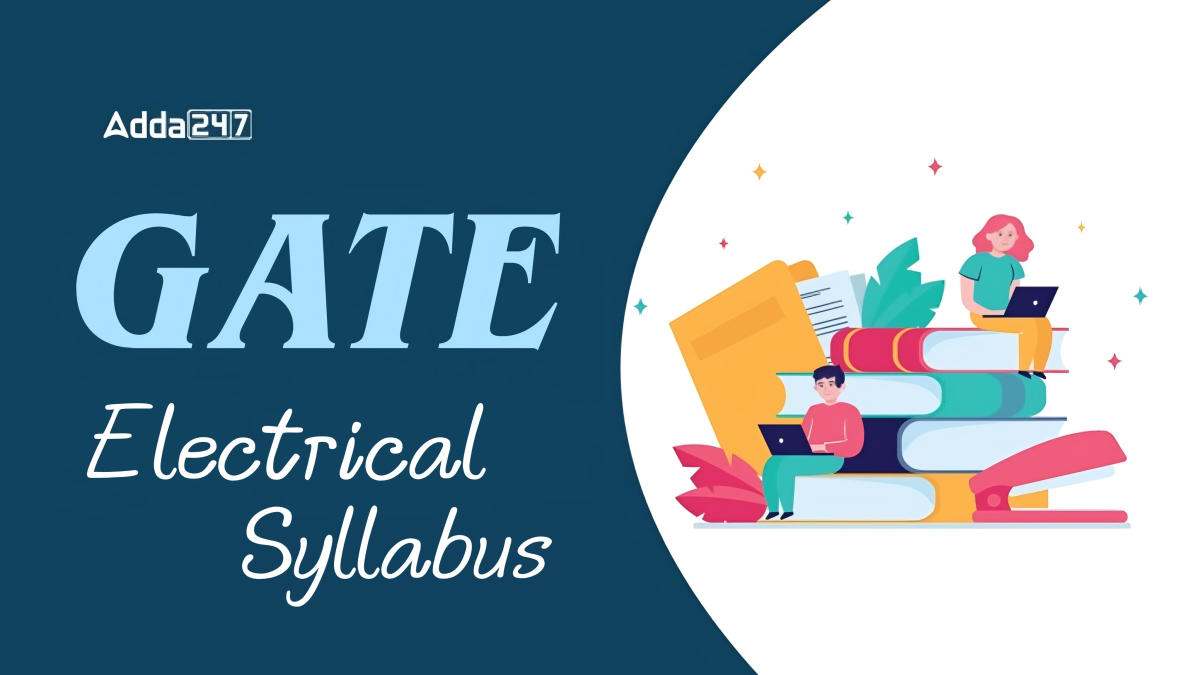

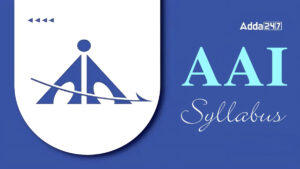 AAI ATC Syllabus & Exam Pattern 2025...
AAI ATC Syllabus & Exam Pattern 2025...
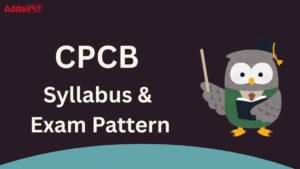 CPCB Syllabus With Exam Pattern 2025, Do...
CPCB Syllabus With Exam Pattern 2025, Do...
 AAI JE ATC Physics Syllabus & Exam P...
AAI JE ATC Physics Syllabus & Exam P...





